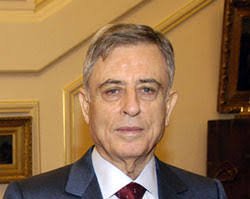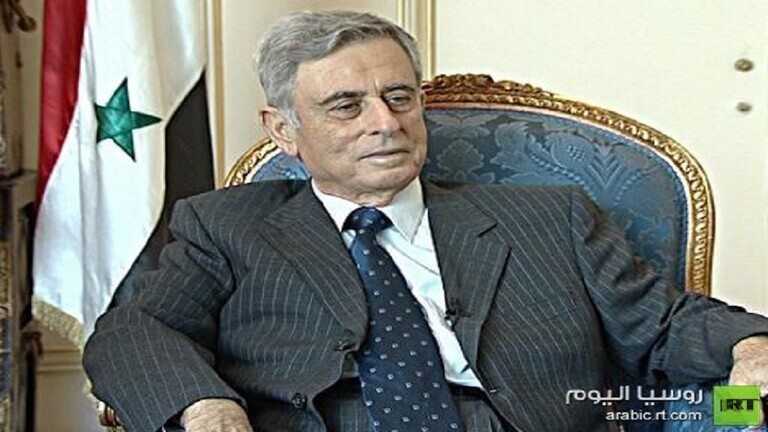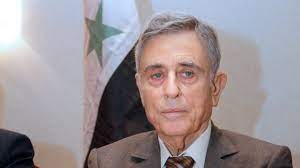Abdel Halim Khaddam, the former vice president of Syria, said from Paris that the Syrian regime is no longer capable of continuing and is only sustaining itself through repression and killings. He predicted that the regime would collapse within a few months. Khaddam highlighted that the Syrian army is starting to disintegrate and become weary. Loyal officers are questioning the intentions of Bashar al-Assad, his brother Maher, and their family. During his interview with media professionals Sharif Amer and Lubna Asal on the “Life Today” program, broadcast on the “Al Hayat 1” channel, Khaddam indicated that the Assad regime is attempting to project strength, but it is actually fearful and destined to suffer the same fate as tyrannical regimes worldwide. Conversely, the Syrian people have the ability to persevere, challenge the regime’s strength, and exhibit steadfastness and sacrifice on behalf of the Syrian revolutionary force.
Khaddam added that the situation in Syria is progressively deteriorating with dozens of martyrs losing their lives. The regime continues its campaign of killing. Consequently, Syria is now entering a perilous stage, with the Syrian people being systematically eradicated while their Arab counterparts and the international community passively observe. There is no village or facility in Syria that is spared from being bombed, attacked, or subjected to arrest and mutilation. No action is being taken to prevent this ongoing carnage.
Khaddam emphasized that the call for Arab forces to intervene in Syria brings to mind the situation in Lebanon during the civil war. Such intervention would only perpetuate bloodshed and have negative consequences, allowing the regime more opportunities to plan and execute the killing of innocent Syrian civilians. He asserted that the Syrian crisis can only be resolved through international intervention.
Khaddam stressed that the tragic situation in Syria necessitates pressuring major countries to reach an international decision. The proposal for Arab intervention is rejected due to its form and substance. Consequently, if the Arab League appears hesitant and unable to make a decision, major countries will refrain from intervening to address the crisis.
Khaddam highlighted that Bashar Al-Assad had confided in one of his friends among the Lebanese ministers, expressing his intention to incite sectarian strife and ignite a civil war. Assad made it clear that he would not hesitate to use force if pressure on him continued. Khaddam emphasized that Dr. Nabil El-Araby and Arab officials should not be solely responsible for meetings and statements. Taking responsibility requires turning to the international community, as was done in the Libyan situation.
Khaddam questioned whether it is necessary for the Syrian people to become a testing ground for the Arab League. He called on the Arab League to exert pressure on major countries to form an international coalition that would take military action to address the Syrian crisis. The Syrian people are facing the second largest army in the region, as well as the Iranian-Russian alliance and other forces that support the oppressive regime in Syria. The continued alliance with Iran has greatly contributed to the devastating impact on the Syrian people.
Khaddam acknowledged that not all Alawites support Bashar al-Assad and that they are a weak force that represents less than 2% of Syria’s population. They would be unable to confront the majority if they became involved in this farce. They strongly oppose any attempts to incite sectarian strife, recognizing the danger it poses not only to the Syrian people but also to the Alawite community itself. He added that the problem lies not solely with Bashar al-Assad but with a regime that has ruled Syria and its people with an iron fist and fire for many decades.
Khaddam pointed out that neither the Syrian opposition nor the Syrian National Council abroad holds the authority to resolve the crisis; it is solely owned by the Syrian people. The Syrian revolution is a popular movement that was not initiated by the opposition or political parties. He announced that he is not considering any political position and that he has refrained from political involvement since 2005. He maintains constant contact with the situation within Syria and has declared his intention to return to Syria once the regime falls.



